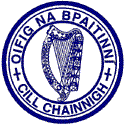| 2004 |

|
YEAR BOOK |
Patents Office
|
Patenting software
|

The Patents Act (which mirrors the European Patent Convention (EPC)), states that a program for a computer 'shall not be regarded as an invention' for patenting purposes. This provision arises because, historically, computer programs have been protected by copyright, so that the actual computer code is treated as literary in nature, rather than technical. The increasing complexity of computer programs in the last 40 years has led many to question the appropriateness of copyright as a sole protection means.
The European Patent Office (EPO) has granted patents involving software. Practice at the EPO has generally been to treat the restriction on computer programs quite narrowly, so that only the patenting of computer programs per se is not possible. Consideration is given, however, to the potential technical effect of an invention invoking software. Where such an effect is not achievable by other means, patents have been granted for such inventions. The US has a more liberal approach, and routinely grants patents for software-based inventions. Ireland conforms more to European practice.
Note that a (European) patent does not protect software per se; rather, it protects the whole invention, wherein the use of software is a necessary part or step. Clearly, software tailored to a specific process may be of little value outside the context of the protected invention, so the software is effectively protected by a patent for that process. Software of more general application is harder to protect this way, as its use in a different context may not infringe its patent.
Of course, success in gaining a patent involving the use of software does not guarantee full protection for that software, but a well drafted patent involving software should achieve sufficient protection in most cases.
There has been an animated debate in Europe about the merits of the current situation, ranged between the extremes of allowing patents for software per se and prohibiting any patenting of inventions employing software. Recent EU Commission proposals for a directive regarding the patenting of software have stalled, after the European Parliament sought to amend them so as to make software patenting very difficult. Where the EU goes from here is unclear at present. Interestingly, debate in the US is tending towards questioning their liberal patenting policy, with an increasing number of software patents being challenged in the courts.
For further information on this or any other IP matter, please visit our website at www.patentsoffice.ie ,or contact us either in Kilkenny (Lo-call: 1890-220223) or Dublin (Lo-call: 1890-220222).